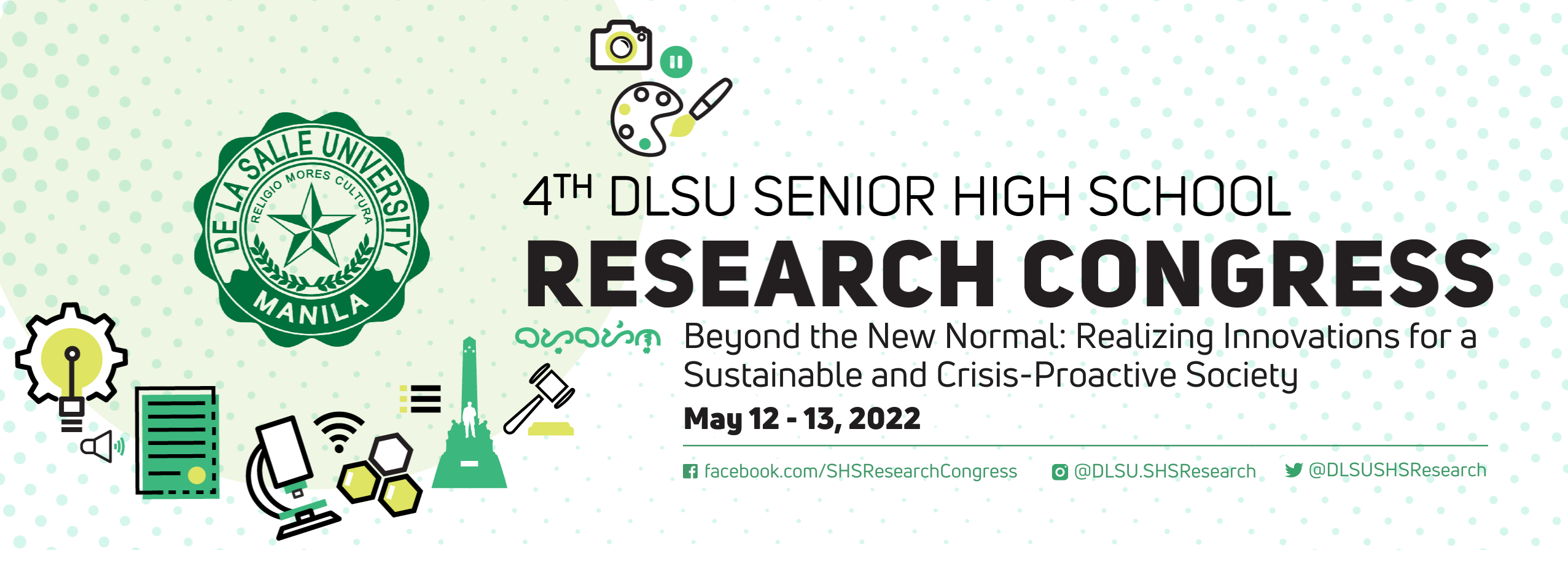Document Types
Paper Presentation
Research Theme (for Paper Presentation and Poster Presentation submissions only)
Media and Philippine Studies (MPS)
Research Advisor (Last Name, First Name, Middle Initial)
Paul Angelo S. Arcega
Start Date
12-5-2022 1:00 PM
End Date
12-5-2022 3:00 PM
Abstract/Executive Summary
Facebook is ever-present in the lives of adolescents as a dominant platform used for social interactions. Undoubtedly, adolescents nowadays revolve their lives around the internet resulting in their susceptibility to anxiety disorders. With this, the number of adolescents using Facebook’s features, along with the number of adolescents experiencing anxiety symptoms are vividly rising. This study assesses Facebook features, including messenger, newsfeed, and post engagements with its relation to anxiety. In this context, the researchers aim to identify the primary cause, process, and explanation of the phenomena frequently experienced. As such, 6-10 students with anxiety from De La Salle University, Senior High School department were asked to participate in an online interview containing questions designed to appropriately capture one’s insights. Results revealed that engagement features such as comment, reactions, and shares, contribute the most to increased anxiety symptoms among users. Judgments and negative feedback were few of the common issues which hinder adolescents with anxiety in utilizing the corresponding features.
Keywords
Facebook; Facebook features; anxiety; adolescents; social needs
Included in
Trigger Warnings: A Qualitative Study on Facebook Features and Anxiety
Facebook is ever-present in the lives of adolescents as a dominant platform used for social interactions. Undoubtedly, adolescents nowadays revolve their lives around the internet resulting in their susceptibility to anxiety disorders. With this, the number of adolescents using Facebook’s features, along with the number of adolescents experiencing anxiety symptoms are vividly rising. This study assesses Facebook features, including messenger, newsfeed, and post engagements with its relation to anxiety. In this context, the researchers aim to identify the primary cause, process, and explanation of the phenomena frequently experienced. As such, 6-10 students with anxiety from De La Salle University, Senior High School department were asked to participate in an online interview containing questions designed to appropriately capture one’s insights. Results revealed that engagement features such as comment, reactions, and shares, contribute the most to increased anxiety symptoms among users. Judgments and negative feedback were few of the common issues which hinder adolescents with anxiety in utilizing the corresponding features.


